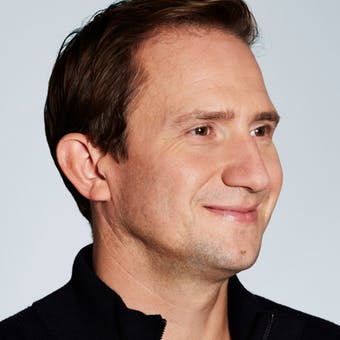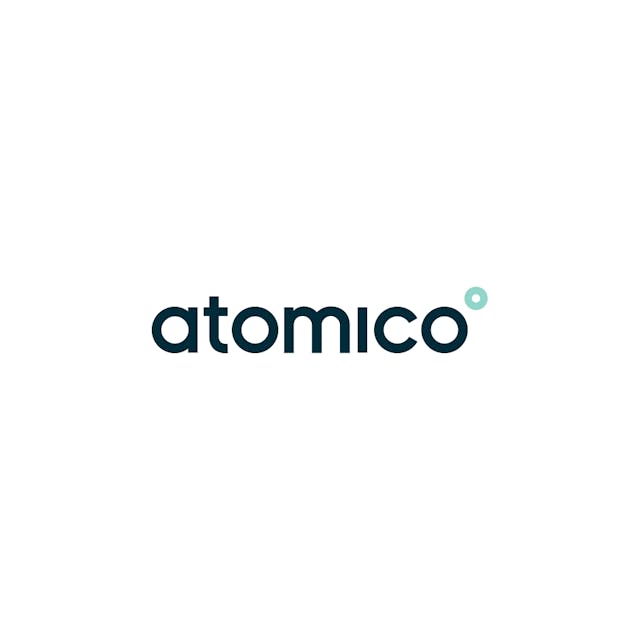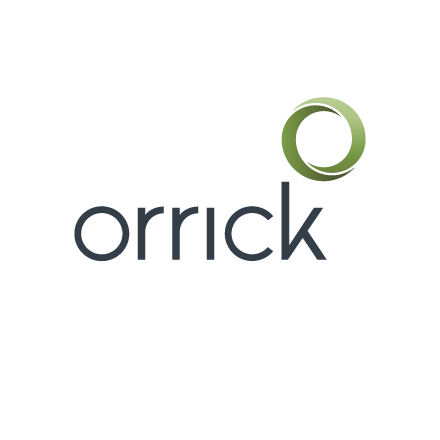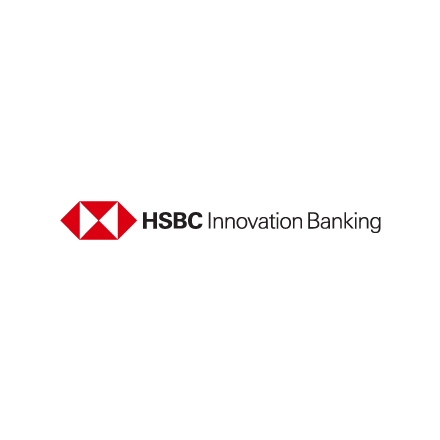After 2022 proved to be one of the most challenging years our ecosystem has ever faced, 2023 was never going to be plain sailing. There’s no getting away from difficult macroeconomic conditions that have faced tech this year, with Europe set to reach little over half of 2022’s levels by the end of the year - a trend being felt across the globe. What’s more, we’ve seen a slowdown in rounds of over $100M, with only 36 of these so-called ‘megarounds’, down from 163 in 2022 and almost 200 in 2021. This has also meant only 7 new $1B+ companies have been minted in 2023. And while dry powder is at a record high, the fundraising environment for VCs has resulted in fewer funds as well as elongated fund cycles. The venture asset class is certainly being put to the test.
And yet, this year European tech has proven its resilience and shown signs of stabilisation. Despite the tough macro environment, the ecosystem has bounced back to a value of $3 trillion, recovering the $400 billion that was wiped out last year; the layoffs that plagued 2022 have peaked and levelled off, with the worst of them seemingly behind us, even if more will inevitably follow; Europe’s overall funding levels, while experiencing the same pullback being felt across the globe, is still the third highest on record at $45 billion and over 9x the levels a decade ago, indicating that the ecosystem remains resilient, and is correcting itself following the excess of 2021 and early 2022.
Turning to the exit environment, Europe’s public markets showed some signs of life, but it seems the bulk of Europe’s pipeline of candidates will have to wait until 2024. Much hope was pinned on Arm’s IPO earlier this year, but while subsequent floats may have got out alive, they have not traded well. CAB Payments’ ill-fated IPO in particular suffered dearly on the London Stock Exchange, but this is not the first company to struggle in the European public markets. And though $36 billion of M&A value have propped up exits in Europe, there is still much to be done to ensure that Europe can provide a listing environment that can compete with the US.
However, when it comes to startup formation, Europe is not just competing with the US, but rather it’s outperforming. Better yet, Europe has actually been doing so for the last five years. While startup formation has slowed across the globe this year, in Europe this is largely due to the weeding out of less committed founders who aren’t ready to take the plunge. But while the perception to many is that this is the hardest time to start a company, the reality is that this is actually the best time to start if you can afford to take the risk. This is not lost on the European ecosystem, as Europe’s share of repeat founders increased significantly. That means a class of dedicated founders who are ready to face a higher bar to raise money, attract talent and win customers.
We’ve also found that talent in Europe’s ecosystem is proving to be one of Europe’s key strengths. In the midst of headlines of the mass layoffs that have dominated the media landscape, it’d be easy to assume that European tech talent has suffered this year. But the reality is, the talent base in Europe has actually become stronger. European tech has been expanding its workforce over the last five years from slightly over one million employees to more than 2.3 million today. What’s more, in this year’s report we can finally put to bed the commonly-held belief that Europe is losing talent to the US. In fact, quite the opposite is true; we’re actually gaining talent from the States, just. Our ecosystem is truly brimming with talent.
More encouraging still is that we’ve also seen a proliferation of Early stage startups driving job creation, accounting for almost double the number of new joiners to the tech industry in each period, compared to growth-stage companies. This cannot be overlooked by policymakers; we must continue to nurture our early-stage ecosystem if we wish to reap its rewards.
This talent advantage is also bearing out in AI. Although OpenAI and NVIDIA are clearly the dominant players in this field, they won’t be the only winners. If we are indeed in the greatest technology supercycle we’ve seen to date, which stands to create trillions of dollars of value, then it’d be remiss to think that Europe won’t give rise to dozens, if not hundreds, of AI champions.
Not only does Europe have more AI talent than the United States, with 120,000 AI operators in Europe vs. 112,000 in the US, but also we’ve seen AI become the number one theme at Seed stage, including Mistral AI securing the largest seed round in European history, and Aleph Alpha raising one of Europe’s largest Series B rounds ever. AI-focused companies also made up 30% of all European megarounds this year, even surpassing the levels in 2022, indicating that investors’ appetite to fund the sector remains strong despite the macro turbulence.
Of course, AI is not the only sector where Europe has continued to perform, as the region continues to show dedication to solving humanity’s toughest challenges. The Carbon & Energy sector accounted for 27% of all capital invested in European tech in 2023, more than doubling its share of total investment since 2021. This made it the single largest sector by capital raised, overtaking both fintech and software. Health tech also saw an increase in funding and captured its biggest share since the pandemic. It’s encouraging to see capital flowing to companies solving the world’s most crucial challenges, despite difficult market conditions.
But now is not the time to be complacent. A continued gap to the US is still evident when we look at who gets funded.
For all the strengths of our ecosystem, which boasts greater startup formation than the US and has done for the past five years, there’s still work to be done to better support these companies to raise capital. In fact, after 5 years, US companies are 40% more likely to have raised venture capital, even though companies from both regions have the same likelihood to scale to a $1B+ outcome. Access to capital is a must, and European investors, both private and institutional, now need to plug this gap in funding if Europe is to reach its full potential.
We’re at a crucial moment in the innovation cycle, standing before the greatest funding imperative we’ve seen in generations. And we have one choice. We can either look to the past, and focus on the tech giants we failed to build, or we can look to the future, and capitalise on the ecosystem we’ve worked so hard to develop; an ecosystem which is now worth $3 trillion, having grown 45x in 20 years. And if we can do that in just two decades, then there’s every reason to believe we can 10x the ecosystem again from here.
We’re at a crucial moment in the innovation cycle, standing before the greatest funding imperative we’ve seen in generations.

And we have one choice. We can either look to the past, and focus on the tech giants we failed to build, or we can look to the future, and capitalise on the ecosystem we’ve worked so hard to develop; an ecosystem which is now worth $3 trillion, having grown 45x in 20 years. And if we can do that in just two decades, then there’s every reason to believe we can 10x the ecosystem again from here. The opportunity is enormous. And while there is a greater risk in the market now than in previous years, as Skype showed us 20 years ago after the dot com crash, embracing this risk in difficult market conditions can change everything, with Skype alone giving rise to nearly 1,000 alumni companies and 15 unicorns. So, if Europe is truly to become the next tech superpower, then all of us - founders, VCs, and investors alike - must embrace the risk and shape the future.
Atomico invests in ambitious tech founders at Series A and beyond with a particular focus on Europe, leveraging deep operational experience to supercharge their growth. Founded in 2006, Atomico has partnered with over 100 ambitious teams - including those at Klarna, Supercell, Graphcore, Compass, MessageBird, Masterclass, Attentive Mobile, Pipedrive and Hinge Health. Atomico's team of founders, investors and operational leaders have been responsible for global expansion, hiring and marketing at companies from Skype and Google to Twitter and Uber.
While 2023 tech investment in Europe is far off from the extraordinary highs of 2021 and around 45% down from last year, it was still a very solid performance with many signs of strength and green shoots in the ecosystem.
We see clear indications that tech and innovation remain the engines for economic growth in Europe and across the globe.
There is a lot of dry powder.
The pool of investors, including investors exclusively focused on Europe, has never been deeper. The number of unique investors in European tech has risen consistently over the past decade. VCs have raised more than $50B in new funds locally since 2021.
The market has heeded the call to action on climate, with Carbon and Energy gaining the biggest share of funding.
Carbon and Energy solutions account for approximately 30% of all capital invested in European tech in 2023, tripling the proportion of investment since 2021. Energy storage, clean energy and energy efficiency top that trend.
AI and automation attracted the second most capital and has a robust growth stage pipeline.
AI investment has soared globally, including in Europe. AI & Machine Learning companies accounted for 11% of the total investment in 2023. What’s more, Europe already has a growing and maturing ecosystem of late-stage companies with AI at their core. Eleven mega-rounds of $100M+ were raised by AI companies in Europe in 2023 alone.
As one measure of the ecosystem’s maturity, there is an abundance of companies across the lifecycle.
Since 2014, Europe has minted more than 350 new unicorns. The continent’s tech ecosystem is well-stocked with more than 3,900 growth-stage tech companies that have the potential to become the next generation of household names and success stories. Europe also has 41,000 early-stage startups – and in the next five years alone, at least 25,000 more tech startups are expected to be formed.
Mind the gap in funding and you’ll find incredible opportunity in Europe.
Funded European companies are as likely as their American counterparts to scale to a billion-dollar valuation after five years in operation. Yet U.S. startups are 40% more likely to have secured venture capital funding in the same timeframe. That said, Europe’s share of global VC reached 17% in 2023 – showing the market is awakening to this opportunity and closing the gap.

Serial entrepreneurs and next generation founders are collaborating and leveraging technology to solve some of the most pressing issues we face. Thank you as always to Atomico for affording us the opportunity to be part of the most important conversation on the State of European Tech.
Orrick ranks No. 1 in Europe for venture capital (Pitchbook) and has been the leader for each of the past seven years. We counsel venture-backed companies, as well as the most active funds, corporate venture investors and public tech companies worldwide.
Our advice is informed by working with more than 4,000 high-growth tech companies globally (including hundreds of companies in emerging sectors, such as AI, Life Sciences & Healthtech, Energy Tech and Fintech), 13 of the 25 largest public tech companies, and more than 400 investors.
Our annual Deal Flow Report analyses the hundreds of transactions we help companies and investors close in Europe and shares insights gleaned from term sheets, industry trends, deal volume and more. Our 2022 report leveraged data from the 500+ transactions we closed for clients in Europe with an aggregate value of more than $12 billion and our 2023 report will launch in Q1.
We recently launched Orrick Tech Studio, a self-service resource to help companies grow and thrive at all stages. With 50+ customizable forms & document generators, 300+ articles, videos and podcasts and robust FAQ and glossary databases, it’s our version of open source for the ecosystem. Learn more at OrrickTechStudio.com.
The European innovation economy has had a reset which we believe will be a positive for the long-term. The macro environment has driven uncertainty and investor caution, and led to a shift in how we do business across the innovation and venture landscape. We are now in a period of thoughtful company-building with investors and management teams identifying sustainable growth opportunities with the capacity to generate profit and have meaningful global impact.
Despite the slowdown, we should be optimistic about the European tech ecosystem in 2024. There are nearly 3,900 growth-stage tech companies with the potential to become the next generation of global category leaders, and that number is set to double in the next five years. As the report will show, the key to delivering on this potential and ensuring Europe becomes the next tech superpower is improving access to capital, broadening our expertise in key sub-sectors and continuing to foster innovation hubs
Going into 2024 we have some tailwinds in that the bench of active European investors is diversifying and expanding, and they remain committed to investing through market cycles. Driving 79% of the total capital invested in European startups at the early stage, our domestic investors have proven to be the bedrock of the startup ecosystem: early-stage investment has shown significant stability in the past five quarters, which should encourage entrepreneurs starting out now.
Founders in Europe have led in building purpose-driven tech, which has attracted an increase in funding at the growth stage that are setting out to solve some of our hardest problems. There is strong momentum in areas such as sustainability and climate, with ground-breaking developments in foundational technologies such as Generative AI with potential applications across almost every industry sub vertical. The Carbon & Energy sector which encompasses ‘climate tech’, accounts for 27% of all capital invested in European tech in 2023, tripling its share of investment since 2021.
However, startups in sectors such as AI, climate, healthcare, education and infrastructure typically take a lot of money to scale. As a result, investors will need to revise their playbook to back these capital-intensive long-term businesses.
Investing in capital-intensive industries requires a comprehensive approach and patience that goes beyond financial analysis; you need deep sector expertise and a nuanced understanding of these specific industries. While this may sound challenging, to create disruptive companies with the potential to change the world, we need institutions that can find creative, empathetic and long term solutions to finance them. The economic challenges the venture landscape has weathered means entrepreneurs face a higher bar fundraising, securing talent and customers. Startups in Europe are 40% less likely than their US counterparts to secure VC funding after five years, even if year-on-year the volume of new startups in Europe outpaces the US. European founders are resilient, but they need help unlocking access to varied and scalable long-term capital, and this is where utilising a breadth of financing sources to build out the capital stack matters.
Through our years of supporting and financing innovation business across every subsector, our expertise in helping companies scale and appetite to deploy capital means we are right there alongside the investors when looking to help founders and companies across all life stages reach their next milestone, extend runway, or gear up for an exit.
As we continue to build out the ecosystem together, there is a significant opportunity to continue to build support for founders as they scale and break new ground. Our experience tells us that while tailored financial solutions are crucial, the success of these businesses also relies on establishing a network of supportive individuals and organisations who understand the unique nature of these novel industries and share a collective mission to grow something greater than their own individual enterprise, be that an innovation hub or emerging sub-sector.
By joining forces with innovative minds and leveraging their expertise, founders have access to a wealth of knowledge, resources, and cutting-edge technologies that can supercharge their own growth and that of the UK and European innovation economies.
Atomico’s latest insights show we should be proud of the resilience the European venture landscape has shown and will continue to show. At HSBC Innovation Banking, we are excited for what’s to come in 2024 and beyond. Europe is leading the way in purpose-driven tech investment, with sustainability and climate increasing their share of funding in the past decade. This is something we should be collectively proud of and continue to foster. Additionally, sectors such as enterprise software, life sciences and fintech remain buoyant and have helped investment remain above 2020 levels, defying economic headwinds.
Seizing these opportunities in 2024 is unpinned by investor capacity, upskilling and attracting world class talent, and maintaining a long-term view around risk and value creation.

If we want Europe to become the next tech superpower, investment is key and at HSBC Innovation Banking we look forward to playing our part in fuelling this critical sector.
HSBC Innovation Banking provides commercial banking services, expertise and insights to the technology, life science and healthcare, private equity and venture capital industries. HSBC Innovation Banking UK is a subsidiary of HSBC Group, benefiting from its stability, strong credit rating and international reach to help fuel its growth.
After a tough year for many in private capital, sentiment is trending back up. But as the State of European Tech 2023 shows, the path forward is not without obstacles.
A time of cautious optimism
Investors almost unanimously predict that deal volume will rise in 2024 compared to 2023. According to our research, 89% of global VCs foresee doing the same or more deals in 2024. The optimism is equally strong in Europe, at 87%—a stark change from last year when only two-thirds of European investors forecasted a better dealmaking environment in 2023 compared to 2022.
Still, market conditions remain uncertain. Exits are down, one-year VC returns are in negative territory in both the US and Europe, and US investors are withdrawing in record numbers from the European market.
But private capital investors are resilient. A VC deal now averages 10 more hours of research compared to last year. Investors are continuing to reset their portfolios with stronger investments that meet a vastly stricter set of investing criteria—transitioning away from hype and growth-at-all-costs to proven business fundamentals, durable long-term growth, and profitability.
Returning to offense
Total VC fund count globally is up 33% over the past decade. Venture capital has never been more competitive than it is now, amplified by all of those investors chasing a much more select group of startups.
While international VC firms may be withdrawing from the region, Europe benefits from a strong and significant base of local investors. They’re taking advantage of this situation by finding and closing the highest quality deals with a pivot from a defensive to an offensive approach.
Venture capital is intrinsically relationship-driven: the best deals are often sourced and closed through an investor’s network. Top European VCs ranked by volume of unicorn investments are growing their networks faster than their peers by 11%—they know this is a move that drives increased and high-quality deal flow.
A year of innovation
Internally within firms, VC is on the cusp of reinventing itself thanks to an explosion of investment in data and AI. More than 60% of European investors plan to increase their productivity by automating internally manual and repetitive tasks. Almost 45% plan to leverage AI to accelerate their market research and due diligence.
Investors are looking forward to reallocating that time they save to the activities AI will never do—building strategic relationships, and playing a more active role in portfolio company support and success.
Externally, AI is ushering in a wealth of innovative products and services. Speaking recently, Kelly Graziadei, Founder & General Partner of F7 Ventures summarized the opportunity: “There are a couple of moments we can look back on where we saw the advent of big platforms and the billion dollar companies that spun out from them. We're going to see the same thing happening with AI."
Whether it is operational innovation to drive efficiency, or product-led innovation creating exciting new investment opportunities, there’s plenty to look forward to in 2024.
Affinity is a relationship intelligence platform that empowers dealmakers in relationship-driven industries to find, manage, and close more deals. With the most automated relationship intelligence insights and technology, Affinity enables leaders to drive deals, free themselves from data drudgery, and ensure their teams can take action with confidence, knowing the context and history of every relationship. The Affinity platform, including Affinity CRM, is used by over 2,700 relationship-driven organizations worldwide. Founded in 2014, Affinity is headquartered in San Francisco and backed by leading investors, including Menlo Ventures, Advance Venture Partners, 8VC, and MassMutual Ventures.
Amidst layoffs and down rounds, it is safe to say that there have been sunnier days for founders and VC investors alike. The European and global startup ecosystem has entered into a new reality, marking an end to easy access to capital, customers and talent — a reality where new rules apply.
This new reality is evident in multiple ways, as this report shows. Valuation multiples for software companies have dropped by a third, and the European tech sector witnessed over 10,000 layoffs in just the first quarter of 2023. Additionally, the total capital invested in European startups has declined by half in comparison to the record-breaking year of 2021.
Nevertheless, despite the evident challenges, we believe that this also marks the beginning of a promising new era for the European tech ecosystem. While this chapter certainly presents difficulties, it also brings positive aspects for entrepreneurship in Europe, serving as a reminder to focus on what matters.
First and foremost, there are multiple reasons for remaining optimistic about the current opportunities for founders. As outlined in this report, the funding landscape in Europe remains on an upward trajectory from a long-term perspective, and the European startup ecosystem continues to attract investors from all parts of the world. Hence, it appears that the downturn is a temporary market correction rather than a lasting threat to the European startup ecosystem.
Secondly, the adjusted market reality has raised the bar for aspiring founders. Only companies genuinely dedicated to solving the world’s most pressing problems will thrive. The emphasis has shifted from explosive growth and quick returns to building enduring companies. Founders must prepare themselves for the long haul, driven by a sense of purpose and mission, which in the long run could bring positive outcomes for the European ecosystem.
Lastly and perhaps most importantly, the European ecosystem has taken the lead in building purpose-driven companies, with sectors like carbon and energy accounting for a third of all invested capital. Furthermore, Europe has put itself at the forefront of AI ethics and regulation amid the breakthrough of large language models (LLMs). In a world where technological innovation is driven by competition, it is essential to establish regulatory frameworks that promote ethics and safety. Europe has already taken the lead in tackling societal challenges in the field of AI and technology, potentially setting the standard for decades to come.
As Slush has consistently emphasized throughout the past couple of years, we have every reason to believe that we are experiencing a pivotal moment in the history of technology and innovation.

In fields spanning energy, biotech, space, computing, and AI, we are suddenly able to build things we could only dream of for most of human history. This unprecedented potential for world-changing entrepreneurship is reflected in our theme for Slush 2023: A story of entrepreneurial grit and building to last. We are witnessing a rising ecosystem with Slush 2023 attracting a record-breaking number of founders, which speaks for an exciting future in the European startup ecosystem and beyond.









